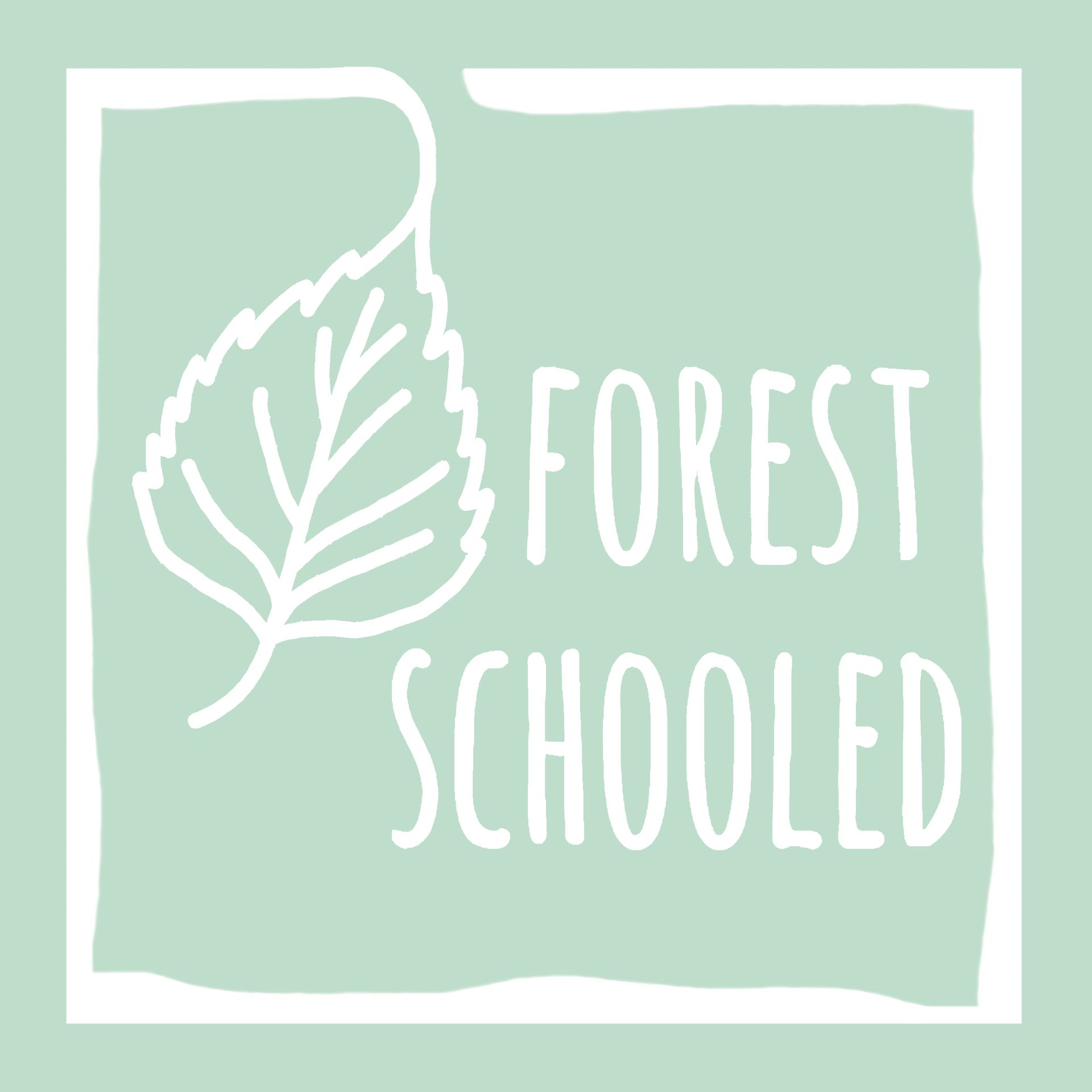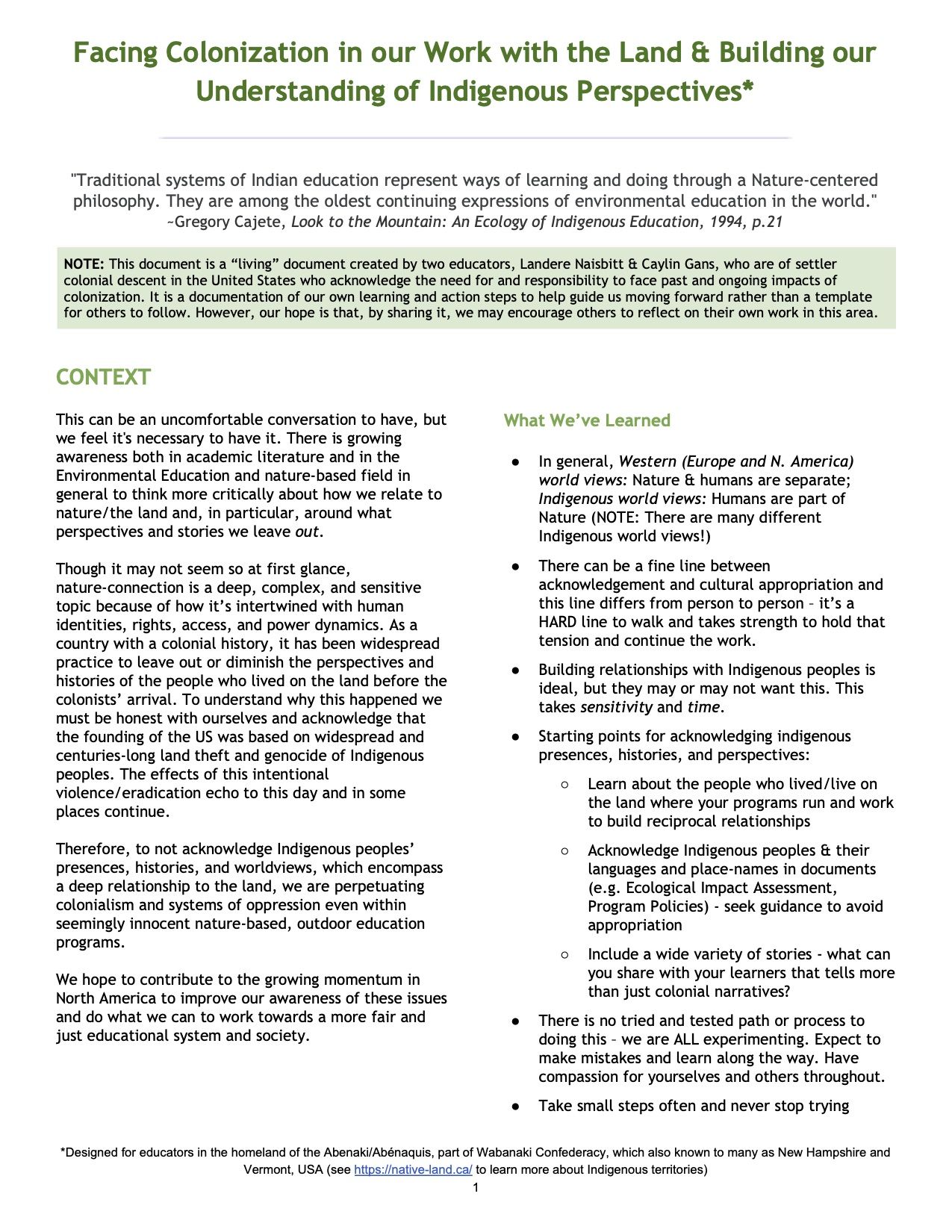Growing up in the United States, and more specifically Hawaii, it always felt like there was an elephant in the room that noone wanted to talk about. Or perhaps knew how to. The elephant was the impact of colonization on the place and the people who live here. Since moving back to the US in 2017 and continuing to pursue work with Forest School, an approach that promotes and facilitates a deep connection with the land, it has become essential for me to face the elephant and start to "unpack" how colonization has affected, oppressed, and silenced Indigenous peoples for centuries. It feels unethical to me, personally, to not address this, as these past and present stories are entrenched with the land. To help facilitate a deep connection between myself, my learners, and the land I feel I must make space for these stories to be told.
A close friend and I have been asking ourselves this very question for a while now, and we have recorded our experiences as we have been learning and trying to take action steps. The result has been the creation of a document titled Facing Colonization in our Work with the Land & Building our Understanding of Indigenous Perspectives. We have decided to share it more widely, not as a template or guide for others to follow, but in the hopes it may inspire others to do this work for themselves and their communities too. Please note it is a "living" document in the sense that it will need continual revision as we keep learning more.


